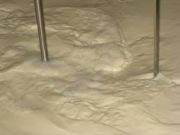Gloucester Laboratories Farm Animal Tests
Bulk Tank Milk Analysis
Bulk milk tank analysis is a diagnostic tool that can be used to assess milk quality and herd health status. Using proven bacterial culture methods alongside professional advice, possible causes of high / fluctuating bactoscan and high cell counts can be investigated.
This information will help pinpoint plant cleaning, hygiene, mastitis and environment issues on the farm.
Each individual analysis involves enumeration, isolation and characterisation of significant bacteria including:
 • Coliforms
• Coliforms
• Pseudomonas sp
• Streptococcus sp.
- Streptococcus uberis
- Streptococcus dysgalactiae
- Streptococcus agalactiae
- Streptococcus faecalis
• Staphylococcus sp.
- Staphylococcus aureus
• Thermodurics
• Corynebacterium
• Yeast & Moulds
The analysis also includes a Somatic Cell Count and a Total Viable Count at 30ºC & 37ºC which provides a comprehensive numerical count of living bacteria within the sample.
Samples must be kept cold and sent by next day delivery in an insulated carrier containing ice brix to ensure they arrive at the laboratory at less than 10 ºC.
This is essential in order to obtain accurate results.
Please contact us for your Bulk Tank sampling kit at £10 per pack.
Individual Mastitis Milk Samples
It is essential that the correct sampling technique is used as poor technique is likely to result in contamination making organism identification and interpretation difficult.
Please refer to our milk sampling routine document for guidance. Samples can be sent to the laboratory by standard post.
Liner Swabs
The effectiveness of the various automated or manual ‘cluster flush‘ techniques and the overall impact on cross-infection within the milking parlour and the effect on mastitis incidence is analysed.
The test involves swabbing of liners and culture to produce a quantitative and qualitative assessment of bacterial load on liners. Results have produced some very useful findings especially when monitoring manual ‘cluster flush ‘ systems.
Borehole Water
The analysis involves enumeration of these bacteria
- Streptococcus sp.
- Coliforms
- Pseudomonas sp.
- Thermodurics
Farm Assurance Scheme
Serology
It is present in the faeces and colostrum of infected animals and can survive more than a year in the environment.
Parasitology
Sheep farms following the SCOPS guidelines can use the WEC tests to reduce anthelmintic usage and carry out monitoring of wormer efficacy.
Examinations available include
Poultry worm egg counts(WEC) and coccidial oocyst counts
Cattle and sheep WEC
Calf and lamb WEC and coccidial oocyst counts
Equine WEC
Examination of skin scrapes and hair plucks for mites and lice
[ e.g sheep scab and sarcoptic mange in cattle, red mite in poultry]
© Wood Veterinary Group is the trading name of Wood Veterinary Group Ltd Company Number 9053619 Regd Office: 125 Bristol Road, Quedgeley Gloucester GL2 4NB

